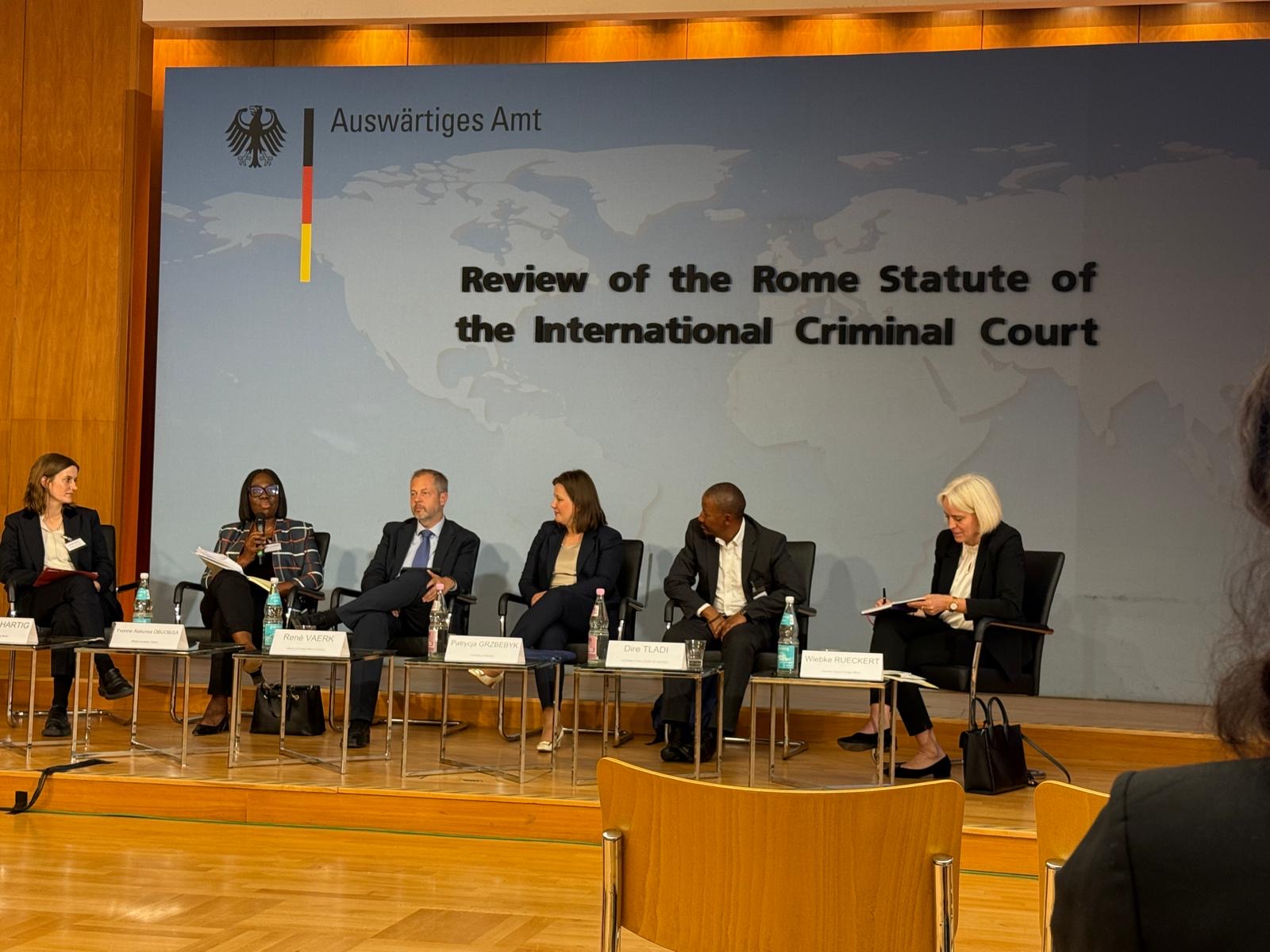Report on the Establishment of a National Human Rights Institution in the Czech Republic
Introduction: Strengthening Institutional Frameworks for Human Rights
The Czech Republic has amended the Act on the Public Defender of Rights, significantly expanding the office’s mandate to establish a comprehensive National Human Rights Institution (NHRI). This strategic development aligns the nation with the majority of European states and marks a critical advancement in fulfilling commitments under the Sustainable Development Goals (SDGs), particularly SDG 16 (Peace, Justice and Strong Institutions). The transformation creates an independent body for the holistic oversight of human rights, moving beyond a previously limited scope.
Expanded Mandate and Alignment with SDG 16
The newly established NHRI will monitor and evaluate all state activities from a human rights perspective, functioning as an independent “watchdog.” This enhancement is fundamental to achieving key targets within the 2030 Agenda for Sustainable Development.
- Comprehensive Oversight: The institution’s mandate now covers all human rights, ensuring a systemic approach to protection rather than addressing isolated issues. This directly supports SDG 16.6, which calls for the development of effective, accountable, and transparent institutions at all levels.
- Preventive Action: Unlike judicial bodies that act retrospectively, the NHRI is designed to function preventively, identifying and addressing systemic risks to human rights. This proactive stance is crucial for promoting the rule of law and ensuring equal access to justice for all, as outlined in SDG 16.3.
- Promoting Non-Discriminatory Policies: By monitoring state activities and providing expert recommendations, the NHRI will contribute to the promotion and enforcement of non-discriminatory laws and policies, a core objective of SDG 16.b.
Core Functions and Contributions to Sustainable Development
The NHRI’s operational focus is multifaceted, with each function contributing to a broader sustainable development framework.
- Systemic Protection and Analysis: The institution will identify and draw attention to systemic problems, thereby working to reduce inequalities and protect vulnerable populations, directly contributing to SDG 10 (Reduced Inequalities).
- Expert Recommendations: By issuing recommendations to the Government and Parliament, the NHRI will guide policy-making towards greater compliance with human rights standards, strengthening governance and institutional accountability (SDG 16).
- Public Awareness and Education: A key part of the NHRI’s work will be to raise public awareness of human rights. This educational role aligns with SDG 4 (Quality Education), specifically Target 4.7, which includes education for human rights and global citizenship.
- Cooperation and Partnerships: The institution is mandated to cooperate with civil society and international counterparts. This collaborative approach embodies the principles of SDG 17 (Partnerships for the Goals), leveraging shared knowledge and best practices to strengthen human rights protection.
Strategic Importance for Vulnerable Groups and Future Outlook
The establishment of the NHRI is a significant opportunity to leverage the existing experience of the Office of the Public Defender of Rights to fortify the protection of all individuals, with a particular focus on the most vulnerable. This commitment is central to the pledge to “leave no one behind” and directly addresses the aims of SDG 10 (Reduced Inequalities) and SDG 5 (Gender Equality).
The office will soon be renamed the Office of the Public Defender of Rights and the Children’s Rights Defender, reflecting its expanded and comprehensive mandate. This institutional evolution solidifies the Czech Republic’s commitment to building a just, inclusive, and rights-respecting society in line with global sustainable development objectives.
Which SDGs are addressed or connected to the issues highlighted in the article?
-
SDG 16: Peace, Justice and Strong Institutions
The article directly relates to SDG 16 as its central theme is the strengthening of a national institution dedicated to justice and human rights. The establishment of the National Human Rights Institution (NHRI) in the Czech Republic by expanding the powers of the Public Defender of Rights is a clear effort to build an effective, accountable, and inclusive institution at the national level. The article states the goal is to “create comprehensive, independent oversight of human rights in the Czech Republic” and to function as a “‘watchdog’ of human rights,” which are core principles of SDG 16.
What specific targets under those SDGs can be identified based on the article’s content?
-
Target 16.a: Strengthen relevant national institutions, including through international cooperation, to build capacity at all levels, in particular in developing countries, to prevent violence and combat terrorism and crime.
The article describes the creation of the NHRI as a move to “strengthen the protection of the rights of all people in the Czech Republic.” The institution’s role is preventive, aiming to “warn of threats to rights or their violation in a timely manner” and “act independently and preventively.” This directly aligns with the target of strengthening a national institution to build capacity for rights protection.
-
Target 16.b: Promote and enforce non-discriminatory laws and policies for sustainable development.
The NHRI is tasked with monitoring “all state activities from a human rights perspective without any restrictions” and issuing “expert recommendations to the Government and Parliament.” This function is crucial for promoting and enforcing non-discriminatory laws and policies, as the institution will “draw attention to systemic problems and the risks of rights violations.” The article also notes that the Public Defender’s office previously dealt with issues of “discrimination,” and this new, broader mandate will enhance that work.
-
Target 16.6: Develop effective, accountable and transparent institutions at all levels.
The entire initiative described in the article is about developing such an institution. The text emphasizes that the NHRI is an “independent, national human rights institution” designed to provide “comprehensive, independent oversight.” Its function is to make state activities more transparent from a human rights perspective, thereby contributing to the development of more accountable governance.
Are there any indicators mentioned or implied in the article that can be used to measure progress towards the identified targets?
-
Indicator 16.a.1: Existence of independent national human rights institutions in compliance with the Paris Principles.
This indicator is directly and explicitly addressed. The article’s main point is that “The Czech Republic has joined the majority of European states which have established an independent, national human rights institution (NHRI).” The text repeatedly emphasizes the creation and independence of this body, which is the exact subject of the indicator.
SDGs, Targets, and Indicators Analysis
| SDGs | Targets | Indicators |
|---|---|---|
| SDG 16: Peace, Justice and Strong Institutions |
16.a: Strengthen relevant national institutions… to build capacity at all levels… to prevent violence.
16.b: Promote and enforce non-discriminatory laws and policies for sustainable development. 16.6: Develop effective, accountable and transparent institutions at all levels. |
16.a.1: Existence of independent national human rights institutions in compliance with the Paris Principles. (The article explicitly states that the Czech Republic has established an “independent, national human rights institution (NHRI)”). |
Source: romea.cz







